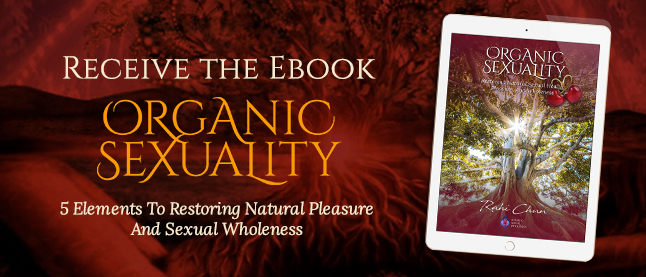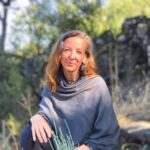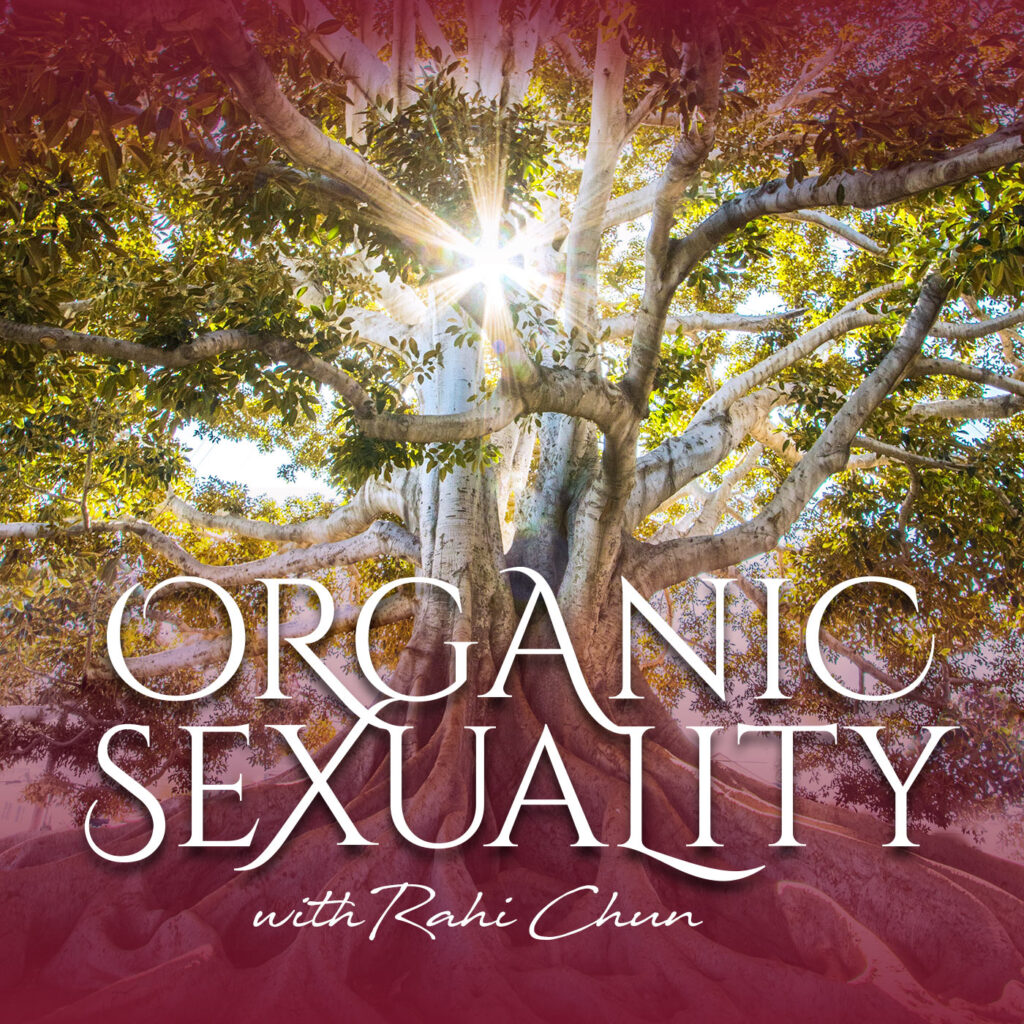
How Re-Wilding Our Embodiment Aligns Eros With Our True Nature and Each Other with Christiane Pelmas
Share this episode:
I first heard about Christiane as the bold licensed psychotherapist who gave up her licensure in order to practice as a sexological bodyworker – knowing that including the whole being was more effective and serving with greater integrity. I then came across her wonderful “Trauma: A Practical Guide to Working With Body and Soul” which I loved for its accurate insights, practical applications, and efficient transmission of wisdom. When I first interviewed her in 2021, I came away with a tremendous respect for the ways in which she lives out her understanding of our authentic nature and the ways in which she facilitates this adventure of re-wilding for others. Sharing sacred ceremony space with her and other colleagues as we have recently, I now adore and love her as the embodied Spirit of insatiable curiosity, loving and compassion for life force that she is.
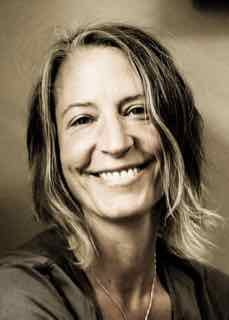
Christiane’s main site which has links to all of her offerings: www.christianepelmas.com
The Institute for Erotic Intelligence: Dedicated to the Science and Practice of Belonging: www.instituteforeroticintelligence.com
OneWoman Movement and Project: www.onewoman.org
The Verdant Collective: Discover What Your Sovereign Female Looks, Sounds, and Feels Like: www.theverdantcollective.com
Christiane Pelmas is a force of nature and her evolving inquiry, meditation and practices of re-wilding and returning to our undomesticated essence informs her path.
Some of the ways this inquiry has yielded support for others includes authoring “Trauma: A Practical Guide to Working with Body and Soul,” “Women’s Wisdom Guidebook & Card Deck” and contributing to the anthology, “Healers of the Edge” – as well as serving as a mentor, guide, teacher, writer, and elder in her community.
She is founder of The Institute for Erotic Intelligence and The One Woman Movement and Project and co-founder of The Verdant Collective. (Links below). Most of all, she is a magnificent human being.
We explore:
How our souls speak a first language – the language of our belonging – that is the key to our passion and our power.
At all times, how all things are speaking that indigenous language of belonging – and what domesticated society has done to erase that language replacing it with the language of fitting in.
How Christiane shifted her space-holding from “therapy” to mentorship & guiding as well as eldering & grandmother-ing, including giving up her therapy license in order to move more deeply into a humane hands-on way of supporting clients.
How “belonging” actively works against the musculature of “fitting in” – and how “fitting in” actively works against the musculature of “belonging.”
How Eros’s main idea is questioning “says who?” – and how its cosmology of possibilities is to co-create, make a mess, and see what’s possible.
How psychedelics can be impactful in opening and expanding possibilities that otherwise the psyche may reflexively close due to social and cultural conditioning.
How personal responsibility and re-wilding requires tossing out the imposed scaffolding from society’s norms in regards to what is “appropriate” and instead honoring our authentic sensual and sexual expressions, curiosities and exploration.
How trauma is a rupture in belonging and how the singular responsibility of any community is to raise its children to have unassailable experiences of their belonging.
Rahi: Welcome to Organic Sexuality, where we explore the restoration of pleasure, the reclamation of sexual sovereignty, and the realization of our embodied sexual nature. An invitation to honor the pleasures of your body by embodying the pleasures of your nature. I'm your host, Rahi Chun. I'm a certified somatic sex educator, a sexological bodyworker, and creator of somatic sexual Wholeness. Today's interview is a real gift as we hear from Christiane Pelus and the fruits bared from her ongoing inquiry and practices of rewilding, of questioning what is truly authentic to our nature as ecologically embodied beings, as well as creatures of belonging within our respective mycelium networks, as opposed to what has been conditioned and subjected to pressures of fitting in, and how this shows up in our embodiment. As you listen to our interview, exploring the ecological state of our existence, cohabitation and belonging, I would invite you to question for yourself how these themes can be applied to your sexuality and erotic embodiment. Can we allow for the authentic desires of the body to be fully expressed as they are? Can we accept and celebrate what feels non-normative about our erotic desires? And can we hold space for a playground of rewilding from the inside out and from the ground up? By nurturing the rich soil and soul of our nature, both essentially curious creatures as well as interconnected communities and tribes?
Rahi: I am feeling tingliness in my feet and excitement in my heart, and just a joy emanating from my heart space as I am here with Christiane, "the going" Pelmas, that's my nickname for her. Um, okay, so a little bit about Christiane. So, um, you know, I first got turned onto Christian by her Fabulous Guide, uh, her authored book called "Trauma, A Practical Guide to Working With Body and Soul." But more recently, we shared a retreat space, a co-created retreat space up, uh, uh, at Salt Spring Island, and got to have an experiential shared experience of a lot of the themes we'll be exploring today. So, um, so Christiane, I'm just gonna like do an intro so people have a context of, of your background. So Christiane is the author, co-author of three fabulous books, the Aforementioned "Trauma Practical Guide to Working With Body and Soul," um, which is so succinct.
Rahi: It's all just the essentials, and I love it. Recommended highly to anyone who works with, uh, trauma in therapy or sexuality, um, or just wants to understand their own embodiment. Uh, you know, a lot better. Two other books, "Women's Wisdom Guidebook and Card Deck", also wonderful. And it's really a collaborative of, of culture perspective, uh, and experiences from all around the world. It's really fabulous. And then she contributed to the anthology "Healers of the Edge," and she's currently gestating, uh, a new offering that is eminent. Mm-Hmm.
Christiane: It's so fun to be here. Rahi,
Rahi: I thought I would start with this quote, and it's a quote I picked up somewhere, uh, amongst your many, uh, expressions of these themes that are so vital, I think, not only to our existence, but they're really vital to our, like, integrity and honoring of our nature. So, um, the quote is, our souls Speak a first language, one, which is indigenous to all life. Remembering this language is the key to self-love, to our purpose, our passion, and our power. I would love, besides hearing from your dog, I would also love to hear, um, what, what this quote like, what, what this means to you, like our, how our souls speak, this first language that is the key to our passion and our power.
Christiane: Hmm.
Rahi: Yeah. What is this first language?
Christiane: What is this first language? Well, I'll, I, maybe I'm just gonna sort of dance around it, but, um, our, our first language is the language of our belonging. And, you know, we just spent quite a lot of time on Salt Spring really exploring belonging, and, and we all come to it with a different sense of it. Like, some people say, we have to find our belonging, and, and some people say, we have to cultivate our belonging. And, you know, my shtick is, no, we don't need to. We just have to remember that we belong. It's very simple. It's a change of perspective. We belong, we're here, we belong ecologically. It's a, it's an ecological fact. It's a physiological fact. It's not a philosophical moment or, you know, a rev, a revelatory, uh, situation in a workshop experience in a workshop. It's, it's just an acceptance that we belong.
Christiane: And there's an indigenous language of belonging. Mm-Hmm.
Rahi: Mm mm mm-Hmm.
Christiane: And, and so, you know, so, uh, if I'm, if I'm getting close to coming to, you know, some sort of concrete answer that it's, it, that, that indigenous language, that indigenous con, uh, conversation and language is the language of our belonging, and we all know it. Mm-Hmm. And likely much of our malaise, whether it's, uh, anhedonia, whether it's, uh, despair, whether it's rage, um, whether it's depression, whether it's, whatever it is, um, is, is a response, a very healthy critical, ecologically critical response to that bereft man.
Rahi: Mm-Hmm,
Christiane: Mm-Hmm.
Rahi: Um, yeah. So, you know, going, going back, uh, you know, I think the first and third points are kind of connected. So, you know, as you shared the indigenous peoples, you know, were steeped in rituals and practices, um, that were so community based. So, you know, as shared that reflect our nature. Um, and it seems to me like you have brought or you have learned, um, the wisdom of these practices. You have, um, uh, facilitated in some of the community, uh, gatherings that, that you have been a part of. Can you speak to, um, what are some ways that like listeners can start to cultivate within their own communities and tribes, rather than getting together and, you know, having a cocktail or a potluck? Like what are some rituals that are very simple that will really foster that, that sense of reminding us of, of our nature?
Christiane: Yeah. Well, you know, it's interesting Rahi that you say, rather than getting together and, and having a cocktail or a potluck, there would be nothing. Those practices could be Mm-Hmm. In the category of what you're, you know, of, of that reclamation Mm-Hmm.
Christiane: And like, you know, the phrase is doing the hard work. You know, how many times do we hear somebody say, oh, I just met so and so. They're so, they're really great. They're just, man, they're doing the hard work.
Christiane: I'm farther along Mm-Hmm. And, and I'm wiser, no doubt. Mm-Hmm. But, but I'm not up here. I'm not an expert and I'm not a guru. Um, and, and, and, and oddly, I might also be directive, like good old fashioned grandmothers might be like, that's a bad choice. Yeah. And, and I'll tell you why I think that's a bad choice. And, and will I love you if you make that choice? Absolutely. Will I stand by you if you make that choice? A hundred percent. Mm-Hmm. But let me just tell you, I think that's a bad choice. And, and, you know, therapy with its back here listening and inviting and contemplating and, and it's, it's a kind of anaerobic environment. And so, so one of the things I, I had to do was just shift, give up my license and shift what I call myself and sit with people in a much more, in a much more kind of, I mean, literally hands-on way, but also Yeah.
Christiane: Hands on, metaphorically, uh, to replicate that sense of if you have something that's troubling you, Rahi, you're just gonna walk across the compound and you're gonna knock on my door. So I practice out of my home. You knock on my door, you come into my home, you know, whatever I'm cooking, you can smell. If I'm doing laundry, you can hear it. Mm-Hmm. If other people are here, they're gonna be here, and we're gonna go and sit down and, and have our time together. But there's a way of just bring it home. Mm-Hmm.
Christiane: And it's like, will you go to my, my Pilates in my yoga class? We, and we practice the same meditation. Oh my God, we're practically siblings. Let's, let's, you know, you're part of my community. And that's not actually how community works. That's, that's a little bit antithetical to community, in fact. 'cause community is a robust, diverse ecology that iterates it's, it's rubbing up against itself. It's, it's pushing, it's challenging. And the very nature of it is that it, it evolves because of that. Mm-Hmm.
Christiane: And it's drop in. I have no idea who's gonna show up. Has it backfired occasionally? Mm-Hmm. I guess it depends on how you look at that. Mm-Hmm. I've gotten some live wires around the fire. Some people don't know how to sit and listen. But how will we learn if we don't include everyone? And the nature of the indigenous community is that everyone's welcome around the fire, and you learn your place. Mm-Hmm. And you learn your place, not because you're shamed, but because you're mentored. Mm-Hmm. And, and so these are the kinds of things that we are gonna have to remember how to do, and we're gonna have to do them. Mm-Hmm.
Christiane: And that, to me is shocking. And, and, you know, if there were like a deep, dark pit of despair, for me, that's one of the things that would have me go into it. Because rahi, think about it, people are in tears, overwhelmed with the how do you do it, Christiane? How do you, I mean, it's so extraordinary what you do. And, and it clearly is, it's clearly extraordinary. Mm-Hmm.
Rahi: Right. Right. Yeah. I feel like, I feel like you're really speaking to the other theme of, um, dismantling the structures within this capitalistic consumer society by getting so simple and really holding a container to allow for the organic ecological process to, to be alive, you know, and, and to breathe really. And, and allowing, um, that process, the space to be what it is and what, what it will be. Mm-Hmm.
Christiane: Totally. Yeah. It is, it is antithetical. I I really like to say that, uh, there are very few either ORs mm-Hmm.
Rahi: Yeah. That's really fascinating, that distinction and that, um, observation. Um, because it is true. They are antithetical, aren't they? Mm-Hmm. One is a, is an effortful doing, and one is an acceptance of, of our what is like our, our primal nature.
Christiane: Yes. Yes. Absolutely. And that effortful doing is a very prescribed doing. Mm-Hmm. It is that I must change my unique and ecologically essential shape Mm-Hmm.
Rahi: Yeah. And you know, that is when trauma occurs. Yes.
Rahi: Right? Yeah. When there is an outer agenda imposed onto the organic nature of the body and what the body's desire is. Mm-Hmm.
Rahi: But I feel like in this society, it comes with this wanting to thrive within this structure. And so we need to train these little infants in certain ways before they have a chance to really organically find their own way. Yes. And when that applies to one's sensuality and exploration of their senses and pleasure, it can, it can really, uh, you know, lead to, you know, a very, you know, kind of two gendered normative, you know, like, this is the right way. You know, girls need to be this way, boys need to be this way. And, you know, all of the things that we're seeing finally, some, uh, resistance and, and, um, progress against. But as far as like rewilding our true undomesticated essence with sexuality and embodiment, um, as a mother and as a le and as a space holder in this field, what, what do you feel like are things that our audience members can start leaning into or exploring? One, to give themselves permission to, let's say, lean into this desire which felt shameful or wrong, or engage in, in, you know, their friends or lover ships in ways that are more edgy, but more authentic to their desire and nature.
Christiane: Well, how is it okay if we get, you know, more personal here? Uh,
Rahi: Of course.
Christiane: You know, I mean, you're, you're
Rahi: If, if that's where the ecological
Christiane: Actually say no,
Rahi: Yes. Yes. If that's where the mycelium roots want to go, let's go there.
Christiane: Because, you know, I, I think, you know, that one of the things that was my desire in participating in this, in this retreat on Salt Spring with the six of us, we, we, we all had an agenda. And then that was a, that was a, you know, a kind of high mind agenda. We, we had a particular desire to explore the realm of, of, of, um, psychedelics and somatic sex education. Right. With seasoned practitioners. Would, you know, is there a way that we could imagine a world in which that those, those really rather disparate universes, could, could, or experiences could, could be woven together, um, practically. And, and, and that was great. And, and I had my own agenda, one of which, you know, some of which was that I wanted to apprentice to this idea of erotic friendships. Yes. And this is, so this is actually, you know, we can take my example very specifically, but we can also extrapolate from it that just noticing the ways we've been shaped to compartmentalize our human experience.
Christiane: And like, this is what this is, and this is what I do over here with that person. This is what this is, and this is what I do with these people right here. Mm-Hmm.
Rahi: See what's possible. Yes.
Christiane: And so it seems, you know, for me, for my part in my ongoing rewilding work on domestication work it right at the moment, among other things, it, it has to do with, wow, I do have these compartments and I don't like them. I might choose, I might choose after going through this wonderful apprenticeship to that, you know, my life might not look much different from the outside, but I don't have these compartments Mm-Hmm.
Rahi: God.
Christiane: That's crossing all sorts of boundaries and totally, Mm-Hmm.
Rahi:
Christiane: Yes. Mm-Hmm.
Rahi: Mm-Hmm.
Rahi: You know, like any kind of engagement is gonna Absolutely. Teach us something more about our potential and our, our essence and, and possibility. Mm-Hmm.
Christiane: Mm-Hmm.
Rahi: Mm-Hmm.
Christiane:
Rahi: Yes. There's
Christiane: Not even a questioning of that.
Rahi: Yes, yes. Or, yeah. I, yeah, I, I get really excited. Um, I mean, as far as like throwing that societal top down in post, uh, structure out the window, like I think psychedelics is such a tremendous aid, you know, obviously also in creating new neuropathways and I think somatic pathways in the body. Yes. Um, like I love, you know, I love taking, um, uh, psilocybin before going to ecstatic dance because I find that my body is dancing in all these new kinds of patterns Mm-Hmm.
Christiane:
Rahi: I feel like that's what we're speaking to.
Christiane: Yeah, absolutely. That, that's, that's the essence of rewilding. It's, it's the, you know, it's the essence of says who
Rahi: Mm-Hmm.
Christiane:
Rahi: Burn
Christiane: To the ground. Some things are like, yeah, that's actually true about me, and that's true about the world and how I see the world and, and, and my place in the world. But, but I, but it comes from my direct experience rather than, as you said, top down Mm-Hmm.
Rahi: Yes. Absolutely. I, I feel like there's certain elements that I wanna underscore in our, in our exploration here. Like one is, you know, how simple, um, it can be to lean into and invite the rewilding experience as, as we hold space for, um, community gatherings. Mm-Hmm.
Christiane: Yeah.
Rahi: They don't have to be a lived in reality.
Christiane: Yes. Yes.
Rahi: So, um, I wanna talk about, um, the, the ethics course. The embodied ethics course. Um, 'cause I have some friends who've taken it. But before we go there, Christian, I wanna ask you, um, you know, as you are engaging in this juicy, beautiful apprenticeship of exploring your own personal life and examining what, what has been in the way of your authentic eros expressing itself for exploring its nature? What have you recognized as the things that have gotten in the way of that, that maybe were in your blind spots before you took on this apprenticeship?
Christiane: Mm.
Rahi: Because I think there, there, I mean, we all have those blind spots and we all have this, I mean, especially those of us who are in the therapy field and have a lot of clients and hold space and, you know, we're kind of put up on a pedestal or seen in a certain way, and it can be very limiting when we buy into the way other people are putting us up on a pedestal. Yeah.
Christiane: Yeah. Right. Uh, oh, I, i, this is a topic, this is a terrain. It's not even a topic. It's an entire terrain that is so juicy and Mm-Hmm.
Rahi: Yes.
Christiane: That I, in that I inherit from my culture, some of which I don't wanna just toss out. Sure. Some of it, some of which I actually just wanna keep. And some of them I wanna tweak and, you know, refine for myself. Some of 'em I wanna utterly toss out so that I require of myself, that I build my own musculature, my own internal musculature, rather than some external scaffolding I'm relying on of Oh, yeah. Oh, we got to this place. I'm not supposed to do that. And Right. And I, there's no personal responsibility at all. There's nothing internal that just happened there. Yeah. Yeah. It's an external Oh, yeah. I'm not supposed to do that. This is what I do in that situation. Mm-Hmm. Because I, I don't wanna get it wrong.
Rahi: Mm-Hmm.
Christiane:
Rahi: I
Christiane: Can only do things with people who are very far away, who I've never had anything to do with other than, you know, and, and so in terms of my exploration, I've, I've had to, I've had to say, um, says who
Rahi: Says who. Yes.
Christiane: Who, and that's so edgy because I as a, as a nurse person Mm-Hmm.
Rahi:
Christiane: Take my role of responsibility so seriously. Yes. And I don't wanna change that.
Rahi: Yes.
Christiane: But I don't want it to be limiting. I, I want it to be enlivening. I want it to be, you know, an an act of a role of nobility rather than a, a thing I'll hide behind. Right. Or a thing that, that, that, that diminishes my capacity to be vibrantly nourished.
Rahi: Right. You want it to be expansive. Mm-Hmm.
Christiane: Yeah. Mm-Hmm.
Rahi: Mm you know? Yeah, yeah. Yeah.
Christiane: Disorienting phase. Disorienting phase.
Rahi: Yeah. Well, I, I, I, I feel I can confidently say that if any listeners in Boulder are hearing this podcast right now, they're gonna be lining up for your monthly potluck, and very excited to test your, your newfound like boundary expansion
Christiane: Practice.
Rahi:
Christiane: It absolutely does. Yep.
Rahi: Yeah. Yeah. So wonderful. So wonderful. Yeah. Um, and thank you for being so transparent with our audiences and sharing your process. It's really beautiful. Yes. Um, so I wanted to ask you, because I, you know, I was so excited about your Embodied Ethics course, and I have friends who have taken it. Um, and because we're kind of like on this theme anyhow, I would, I would love to hear more about, um, what it is and what it, what is the invitation in the embodied eth the Erotically Embodied Ethics course for people who show up to examine within their own lives?
Christiane: Mm-Hmm.
Christiane: And, um, and so, so that, you know, that has someone like me say, because, you know, because I'm trying to see things as they are not, as they're called. Um, it, it immediately has me asking, what are we, what are we not, what conversation aren't we having? And how are we not approaching ethics? And what are we not doing that we need to start doing? And so my, the Embodied Ethics courses that I offer, and they're, each of them, is different just as a response to what's happening in the, in the, in the Times. Mm-Hmm. Um, it's a, it's an attempt to at least begin to isolate the conversations we need to be having. So I don't make any promises. It, it's not a thing where you're gonna come and, you know, become like ethics superman or Ethics superwoman. Yeah. Super person. It's, it's, can we, in some cases, people have shared, oh my, I feel even less tethered, but somehow more exhilarated than I, than I was before.
Christiane: Mm-Hmm.
Rahi:
Christiane: From an, from an authority that is distant and disembodied. Mm-Hmm.
Rahi:
Christiane: Just even that like Mm-Hmm.
Rahi:
Christiane: Yeah. And depending on the course, you know, will have the, each student we'll have students upon arriving send me Mm-Hmm. You know, a short synopsis of an ethical dilemma that's re that's, that's recent enough for them. It's not a live wire ethical dilemma. Right. There's no skin in the game anymore. Right. Uh, because it's in therapy and we're not gonna hold people through an experience Mm-Hmm.
Rahi: Oh, that's fascinating.
Christiane: And oh, so many things come up. But the, I'm sure the invitation is actually to imagine that ethics might be exactly contrary to what we've been taught. That there isn't a, you know, an external top-down outside in set of rote things we will always do in this situation and never do in that situation. That by nature, ethic, ethics and ecological ethics are mean that there's a thing that is yours to do in this dilemma, and there's a thing that's mine to do in this dilemma. Mm-Hmm.
Rahi:
Christiane: Mm-Hmm.
Rahi:
Christiane:
Rahi: Yeah. I, I love that because it really calls upon, like, in that council situation, each person isn't hiding behind a position, but they're actually sharing how it affects them. Mm-Hmm.
Christiane: Which,
Rahi: Which, you know, is, is bringing, you know, greater, like, I, I don't know, information, support, awareness, insight. Mm-Hmm.
Christiane: I did just figure out the dates. So we're, so you're, you're, we're getting closer,
Rahi:
Christiane: It's my, yeah. The third one that I, that's, that's mine, that came out of me, um, my fourth publishing, hopefully publishing one way or another. Publishing opportunity or experience. Yes. Um, yeah. And you know what I'll say, Rahi is that I love that you're such a fan of the trauma book and, and the nature of what we're discovering, both scientifically and, and anecdotally is about the nervous system, what we call the autonomic nervous system. Um, just the nature of it is that it's changing all the time. And that's just so beautiful. And, and so the book I would write now, and it was true even by, by 2019, that the, that I realized, oh God, there's a second edition that I need to write, write now. Mm. And I just, it's, there's, I had didn't get around to it. Didn't get around to it. And when I started working on this recent project, which was almost was a year and a half ago about, um, I thought that I was carving out space to do the second edition of that book Mm-Hmm.
Rahi:
Christiane: Mm-Hmm.
Rahi: No, I mean, based on our conversation today, it, it, it makes total sense, you know, in, in context of our conversation. Right. Why you feel that way. Absolutely.
Christiane: Right. Okay. Um, and, and, and so I thought that I was gonna be, you know, doing a, a much larger, you know, it would not be succinct, it wouldn't be efficient. It would probably be a 350 page big deal thing. Mm-Hmm.
Rahi: Genre. Mm-Hmm.
Christiane:
Christiane: Mm. And how the family unit, and particularly me and, and, and my son and his younger brother, my younger son, the three of us, you know, just how it was that we, the experiences we had Mm-Hmm. The experiences we had before that, the experiences we had during it, and the experiences we've had just now after that Mm-Hmm. That I would be able to, that would give me, that would be the, the, the through line. Mm-Hmm. To everything I wanna say about trauma as a rupture and belonging. Mm-Hmm.
Rahi: Yes. Yes.
Christiane: Um, I don't, it's, it is not a prescriptive book. I have no interest in writing a prescriptive book. Mm-Hmm.
Rahi: Mm-Hmm.
Christiane: Yes. Yeah. That in fact, the singular responsibility of any community would be that it raises its children to have extraordinary unassailable experiences of their belonging. Mm-Hmm.
Rahi: Yeah. Yeah. Totally. Oh, I can't wait to read it. Christian, thank you so much for sharing yourself and for showing up as you do as you are in the ways that you do. Um, how do people find out about your potlucks? I mean, I don't know if it's like people are gonna be flying in from all over to Boulder once a month for these potlucks, but, but I'm curious, how do people in your community find out about your potlucks?
Christiane: Yeah. To find out about anything? I'm up to it. It's just right there on my website, on the camera,
Rahi: On your website with
Christiane: ChristianePelmas.com.
Rahi: Okay. So, um, christianepelmas.com. It'll be in the show notes along with the Verdant Collective and some of the other things that you offer. Um,, thank you so much.
Christiane: Hmm. You are so welcome. What a pleasure.
Rahi: How is this interview landing in your ecologically erotic embodiment right now? Is there a felt sense of any body parts or erotic inner aspects that have bought into the fallacy of society standards for fitting in or not fitting in as if there is any such thing within the vast cosmos of existence, how would it be to accept and remind these aspects or body parts of their inherent and brilliant nature of belonging? Are there ways your mind has categorized certain members of your various tribes in ways that prevent the natural flow of life force for connection and intimacy? And if so, how would it be to just let this go and open to the infinite possibilities for connection? Links to all of Christian's endeavors are posted in the show notes. If you'd like to express appreciation for this podcast, consider leaving a review on whichever podcast platform you're tuned into. And until next time, take good care.
Get Podcast Updates
Enter your name and email address below to receive insights behind each Organic Sexuality Podcast episode and the ebook Organic Sexuality, 5 Elements to Restoring Natural Pleasure And Sexual Wholeness
Featured Episodes
With some of the wisest Somatic Sexologists in the Field.
Dr. Aline LaPierre
Susanne Roursgaard
Devi Ward Erickson

Dr. Liam Snowdon
Kimberly Ann Johnson
Dr. Ellen Heed
Keli Garza
Kris Gonzalez, L.Ac.
"Coocky" Tassanee Boonsom
Dr. Betty Martin
About the Show
We explore the restoration of pleasure, the reclamation of sexual sovereignty, and the realization of our organic sexual wholeness. We engage with leading somatic therapists, sexologists & sexological bodyworkers, and holistic practitioners worldwide who provide practical wisdom from hands-on experiences of working with clients and their embodied sexuality. We invite a deep listening to the organic nature of the body, its sexual essence, and the bounty of wisdom embodied in its life force.
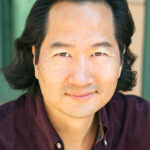
Rahi Chun
Creator: Somatic Sexual Wholeness
Rahi is fascinated by the intersection of sexuality, psychology, spirituality and their authentic embodiment. Based in Los Angeles, he is an avid traveler and loves exploring cultures, practices of embodiment, and healing modalities around the world.
